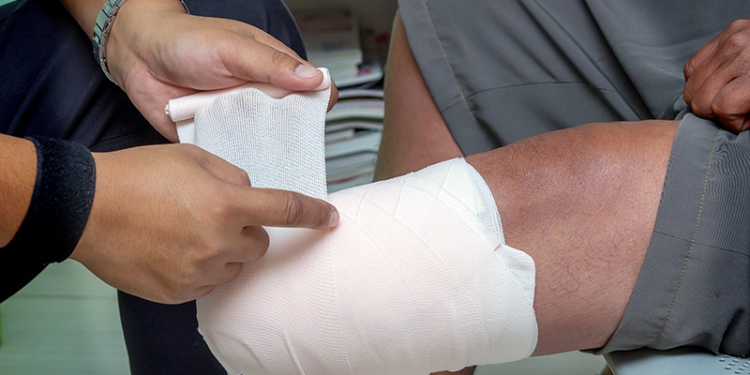The National Association for the Advancement of Orthotics and Prosthetics (NAAOP) released its latest webcast in which Peter Thomas, JD, discussed significant developments impacting the O&P community, including the following:
· Introduction of Senate Bill 4503
Senators Daines (R-MT), Warner (D-VA), Cassidy (R-LA), Duckworth (D-IL), and Cornyn (R-TX) introduced S. 4503, a companion bill to H.R. 5262, the Medicare O&P Patient-Centered Care Act of 2020. This long-awaited legislation is bipartisan, mirrors the House version of the bill, and provides the O&P community with a legislative goal in the Senate. S. 4503 that separates durable medical equipment from O&P clinical services, reinstates Congressional intent on the meaning of off-the-shelf (OTS) orthotics for purposes of competitive bidding, exempts certified and licensed orthotists and prosthetists from OTS competitive bidding, and prohibits drop shipping to patients of any orthoses or prostheses that require clinical services. NAAOP encouraged people to write their Senators seeking cosponsorship of the bill at NAAOP’s Congressional Action Center page on its website.
· S. 4343 (The Triple A Study Act)
The Amputee Coalition of America recently announced introduction of the Triple A Study Act, bipartisan legislation sponsored by Senators Blackburn (R-TN) and Duckworth (D-IL) that would collect nationwide data on limb loss and limb difference and update our collective knowledge base of the patients served by the O&P profession. NAAOP said it supports the legislation and will be advocating for its passage.
· Medicare Audits and Prior Authorization
Having suspended Medicare audits and implementation of prior authorization for six lower-limb prosthetic codes due to COVID-19, the Centers for Medicare & Medicaid Services (CMS) has now reengaged these programs. As of August 3, Medicare contractors are permitted to begin audits of Medicare providers and suppliers but have been instructed by CMS to accommodate those providers overwhelmed by COVID response. CMS is also pursuing prior authorization of six lower-limb prosthetic codes beginning September 1 in four states (Texas, California, Michigan, and Pennsylvania) and will implement the program nationally on December 1.
In addition, lower-limb prosthetic components described by these six codes must be verified by the Pricing, Data Analysis, and Coding contractor by January 1, 2021. For more information on the prior authorization program, Noridian will host a webinar on September 10 at noon CT. To register for the webinar, visit https://register.gotowebinar.com/register/4360148953173147405.
· OIG Orthotics Reports Continue to Alarm the O&P Community
In the past several weeks, three separate Health and Human Services Office of Inspector General (OIG) reports have been issued on suppliers of orthotics, asserting very high error rates, in some instances 100 percent of the claims reviewed. The suppliers under review typically employ a business model reliant upon drop shipping certain OTS orthoses directly to patients’ homes. The OIG asserts that a simple physician prescription is not enough to justify medical necessity and that suppliers are obligated to verify the medical necessity of the orthoses they bill to the Medicare program. These reports reflect negatively upon the orthotics community, but they also provide evidence of the need for Congress to pass the Medicare O&P Patient-Centered Care Act and are helpful in making that case to legislators, Thomas said.
· Nicole Ver Kuilen Just Felt Like Running
In conjunction with the 30th Anniversary of the Americans with Disabilities Act, Nicole Ver Kuilen, the NAAOP Inaugural Fellow and a NAAOP board member, announced a virtual race to be held on October 3 across the country to promote exercise among people with disabilities (#WeJustFeltLikeRunning).
The race is being organized by Ver Kuilen’s organization, Forest Stump, and is designed to highlight the discriminatory effect of coverage denials by insurance companies of prosthetics, orthotics, and assistive devices and technologies that allow people with disabilities to be physically fit and active. The virtual race will culminate in Washington DC with the delivery to Congress of a petition to make this point.




